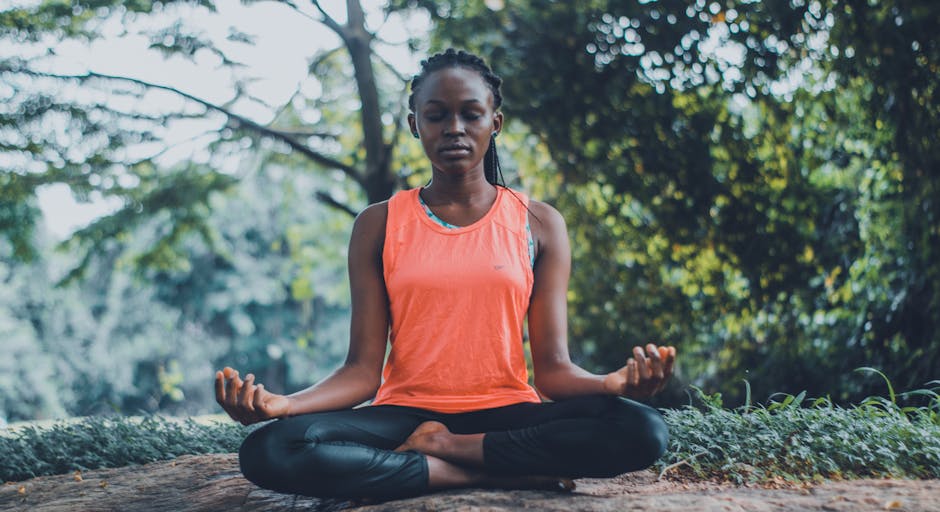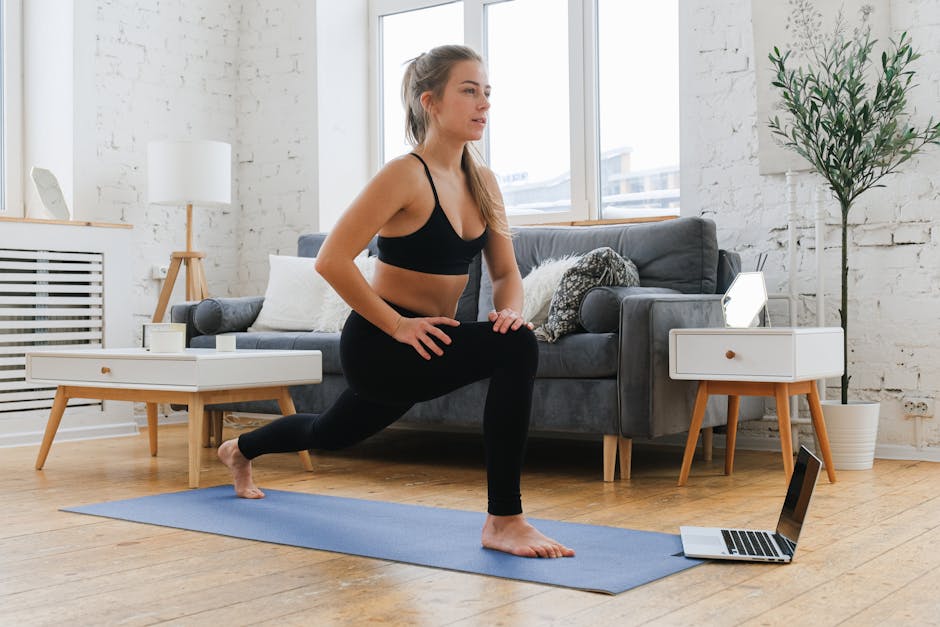Exercise is often celebrated for its physical benefits, but its impact on mental health is equally significant. As we navigate through the stresses of daily life, finding accessible and effective ways to boost our mental well-being becomes crucial. This discussion sheds light on how simple activities like walking, yoga, and strength training can be powerful tools in enhancing our mood and cognitive functions.
Understanding Exercise’s Role in Mental Health
Living with mental health conditions such as depression and anxiety, many people undergo a constant search for relief that's both effective and accessible. Amid various treatments, exercise stands out as a valuable option. It's not just about building muscles or shedding pounds; it's a journey towards improved mental health. Engaging in activities like walking, jogging, yoga, and strength training can positively impact our well-being by offering a natural boost to our mood and cognitive functions.
Walking or jogging activates more than just your muscles. They encourage the release of endorphins, often termed the 'feel-good' hormones, potentially reducing depressive symptoms. A brisk walk in the park or a light jog around the block each day can significantly lighten your mental load, demonstrating that sometimes, the simplest exercises provide substantial benefits.
Yoga serves as a powerful tool against stress, anxiety, and depression. Through a combination of physical postures, controlled breathing, and meditation, yoga helps cultivate a state of calm, nurturing both mental and physical resilience.
Strength training, while often associated with physical prowess, also offers significant benefits for mental health. Engaging in strength training sessions can be therapeutic, providing a sense of accomplishment and control. Each time you lift, you're not just building muscle – you're boosting your self-esteem and challenging depression.
Scientific evidence supports exercise's role in improving symptoms of depression and anxiety, adding confidence to this approach.1,2 The adaptability of exercise allows it to mold perfectly to individual preferences, circumstances, and fitness levels.
Starting a new exercise routine might seem daunting, but it's okay to begin with small steps. Consistency and finding an enjoyable activity are key to adherence. Regular exercise offers a blend of physiological transformations and mood enhancements, making it a valuable companion treatment for those dealing with mental health issues.
Embarking on a journey towards better mental health through exercise doesn't mean you're alone. Support from friends, healthcare providers, or joining a community can enhance your success, providing motivation and encouragement. Remember, every individual's path to wellness through exercise is unique, but it's a universally empowering journey towards a brighter state of being.

Creating a Personalized Exercise Plan for Mental Wellness
The journey to crafting a personalized exercise plan for mental wellness requires attention to our distinct preferences, capabilities, and mental health objectives. Developing a tailored routine fosters both physical and emotional growth.
When embarking on this personalized path, it's essential to analyze which physical activities resonate with you. Do brisk morning walks invigorate you, or does the solitary peace of yoga align your mind and body? Perhaps the resilience built through strength training mirrors the mental fortitude you seek. Investing time in discovering these exercises is crucial, and integrating a blend of aerobic and strength-building activities can benefit both the mind and body.
Understanding your starting point is important. Assessing current fitness levels alongside mental health goals lays the foundation for creating a regimen that's both challenging and achievable. Small, incremental milestones pave the way for sustainable progress and celebrate each step forward.
Structuring your exercise plan involves considering frequency and duration. Determine how many days a week are feasible for your lifestyle and conducive to your mental wellness aims. Consistency is more important than intensity, emphasizing the value of steady engagement over erratic bursts of activity. Session lengths can vary, and shorter durations spread throughout the week can still provide significant benefits.
Variety is key to maintaining interest and engaging diverse muscle groups. Rotating between different exercises prevents monotony. This rotation not only enhances physical health but also enriches the mental landscape with fresh stimuli.
Companionship can enrich the journey. Exercising with a friend or engaging in community classes fosters motivation and accountability. The collective energy and camaraderie make exercise an anticipated event rather than a solitary task.
Crafting a narrative that champions progress over perfection fuels perseverance. Success lies in consistent effort coupled with self-compassion. Celebrate the workouts accomplished, forgive the missed ones, and gently guide yourself back onto the path without self-criticism.
Integrating exercise as a non-negotiable part of your daily routine elevates its priority. Setting aside specific time slots or coupling exercise with another daily event helps weave physical activity into the fabric of your daily life.
By charting a path attuned to personal nuances, acknowledging current fitness levels while respecting mental wellness aspirations, and embracing an enjoyable progression of activity, the personalized exercise plan for mental wellness transforms from concept to cornerstone in your journey towards holistic health. It sets the stage for realignment and rejuvenation, connecting the strength of the body to the resilience of the mind, fostering an equilibrium where each stride forward is a step towards a fuller, more vibrant life.

Navigating Challenges and Staying Motivated
Embarking on the path to regular physical activity often comes with hurdles that can feel challenging. You might struggle to find time in a busy schedule or lose motivation along the way. Maybe it's the lack of a nearby gym or comfortable workout space at home. Despite these obstacles, maintaining a consistent exercise routine is not only beneficial but also achievable with creativity and determination.
Let's focus on addressing these challenges and exploring practical strategies for overcoming them. We'll also highlight how to integrate physical activity into your daily life and draw upon the strength of social and emotional support networks.
Lack of time is a common barrier to staying active. Reassess your day and consider consolidating tasks or breaking up your exercise into smaller segments throughout the day. Simple tweaks like parking farther from your destination or taking the stairs can significantly increase your activity levels without requiring a large block of time.
If motivation is lacking, setting realistic and specific goals can help. Reframe broad intentions like "get active" into tangible targets like "walk for 15 minutes every morning before work." Track your progress visually to celebrate your achievements, no matter how small. Remember, every bit of movement counts and contributes to your mental well-being.
The absence of gym facilities or equipment can be navigated with creativity. Exercise doesn't require high-tech gadgets or vast spaces. Body-weight exercises like push-ups, sit-ups, and squats are effective for strength training without any equipment. Online platforms offer a wealth of free workout videos catering to various fitness levels and preferences, from high-intensity interval training (HIIT) sequences to serene yoga flows.
Incorporating exercise into daily life means viewing it as non-negotiable, similar to eating and sleeping. Blend it seamlessly into your routine by attaching it to existing habits. If you enjoy a morning coffee, pair it with a brisk walk. Engage in 'active meetings' by walking while discussing work projects over the phone. These small shifts can lead to a more active lifestyle without feeling like a drastic change.
Social and emotional support can provide guidance and motivation. Sharing your journey with friends, family, or online communities offers encouragement, makes exercise more enjoyable, and increases adherence. Consider finding an 'accountability buddy' with similar fitness goals to share progress, exchange workout ideas, or even exercise together.
Obstacles to maintaining a consistent exercise routine are common and varied. However, with strategic adjustments and a supportive backdrop, these challenges can be addressed, paving the way to improved mental health and an enriched quality of life. Remember, every step taken is a step towards greater well-being.

In conclusion, the journey towards improved mental health through exercise demonstrates the power of movement. It's not about the intensity or complexity of the activity but rather about taking those first steps towards a routine that brings joy and vitality into your life. By incorporating regular physical activity into our daily lives, we open doors to better physical health and a more serene and resilient state of mind.
- Schuch FB, Vancampfort D, Richards J, Rosenbaum S, Ward PB, Stubbs B. Exercise as a treatment for depression: A meta-analysis adjusting for publication bias. J Psychiatr Res. 2016;77:42-51.
- Stubbs B, Vancampfort D, Rosenbaum S, et al. An examination of the anxiolytic effects of exercise for people with anxiety and stress-related disorders: A meta-analysis. Psychiatry Res. 2017;249:102-108.
Writio: Your Website’s Content Creation Solution! This article was written by Writio
Leave a Reply